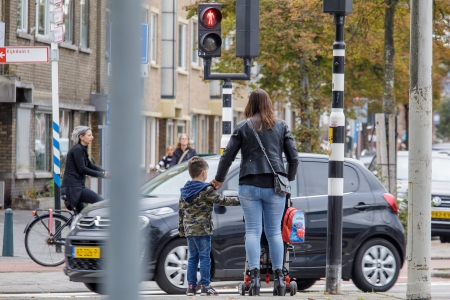Following the example of the European LEARN! project [1], we understand traffic education to mean all educational activities that aim to positively influence road user behaviour. These activities mainly focus on:
- Gaining knowledge and understanding of traffic rules and situations;
- Developing and improving skills through training and experience;
- Strengthening and/or changing attitudes and intrinsic motivations towards risk awareness, personal safety and the safety of other road users;
- Providing the tools necessary for a well-informed choice of transport mode.
Here we can distinguish between formal and informal education. By formal traffic education, we mean the education provided in the form of a curriculum or project, usually by a school or training institute. Informal education concerns everyday activities of parents/caregivers to impart knowledge and teach children skills to participate in traffic safely.
Public communication also aims to bring about a change in knowledge, attitude or behaviour (see SWOV fact sheet Public communication). The main difference with traffic education as intended here is the (physical or virtual) interaction with a teacher/instructor, in groups or individually. This interaction is absent, or at least less prominent, in public communication.
